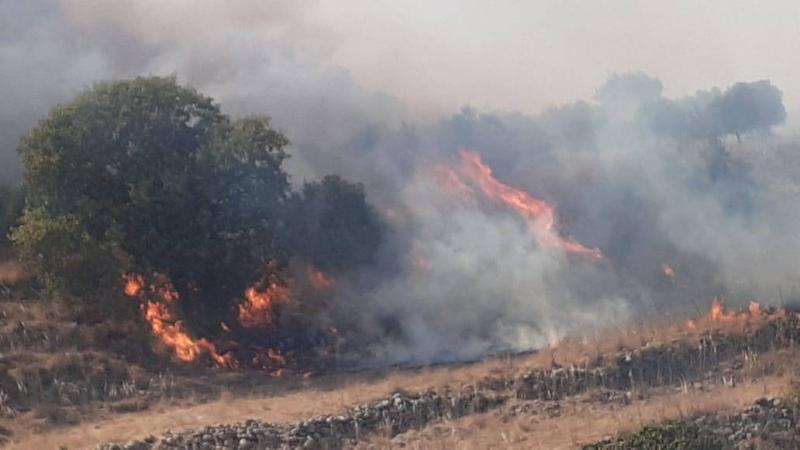Until the war ends and the Israeli killing and destruction machine in the south stops, there will not be a complete and accurate accounting of the direct and indirect losses from the war. Therefore, everything written and talked about the numbers so far remains mere estimates. What is certain is that the costs are high and borne by the south and its people. It is noteworthy that bombings are occurring in 55 southern villages, while life continues normally in other areas of the south. Amid the circulating figures about the extent of losses, a question arises about the losses of the farmers who are heartbroken over the burning of their lands and livelihoods, and how they will be compensated.
Recently, Abdullah Al-Dardari, the regional director for Arab states of the United Nations Development Program, announced that the losses in Southern Lebanon have exceeded two billion dollars, with more than 100,000 people displaced and over 100,000 olive trees burned. Estimates also suggest that 1,060 hectares of olive and oak trees, as well as tobacco—which is valued at about 50 million dollars annually and is considered one of the essential crops for southern farmers—have been burned.
The Minister of Agriculture in the caretaker government, Abbas Haj Hassan, confirmed in an interview with "Al-Anbaa" that the Ministry of Agriculture is monitoring Israeli aggressions daily, whether in the agricultural, animal, or plant sectors, or in agricultural infrastructure. Regarding Israel's use of internationally banned white phosphorus, which could destroy agricultural seasons for the next ten years, the Lebanese Minister of Agriculture stated that all these theories remain scientific theories and need compelling evidence through soil samples from the areas that were bombed over an area of 210 kilometers. He stressed that this task is not currently feasible for the government, the Ministry of Agriculture, or specialists.
He added: "We are threatened with our lives and the lives of our teams that could work on the ground, so this task is postponed until after the Israeli aggressions cease. Then, samples will be collected from all bombed areas, and the test results will be published for necessary actions to take place."
Minister Haj Hassan confirmed that compensating the patient and steadfast farmers in the south and western and northern Beqaa is a top priority and is being studied by the government, alongside several official Lebanese complaints against the Israeli enemy before the Security Council and the United Nations to obtain compensations.
He spoke of farmers in the Al-Wazani Plain, Al-Khiyam Plain, Al-Adaysah Plain, and other plains in Shebaa, who continue to work even today despite the bombings, sniping, and the enemy's arrogance. They remain steadfast on their land, insisting on their rights until their last breath.
In response to a question from "Al-Anbaa" about the compensations that the Higher Relief Committee could provide for farmers affected by the war, Major General Mohammed Khair replied that all tasks concerning assessments and compensations are frozen and postponed until after the end of the war and the necessary survey to determine who the actual affected individuals are, leading to a decision from the Cabinet that would allocate appropriate funding for the farmers at that time.
When asked if the committee had provided any assistance to the farmers, Major General Khair replied: "Nothing at present; let us wait for the plan when the time comes."
This is not the first time that Southern Lebanon pays a high price in lives and property. When its farmers return to their livelihoods after the recovery of the soil, the entire country will flourish and bear fruits, according to "Al-Anbaa" Kuwait.




